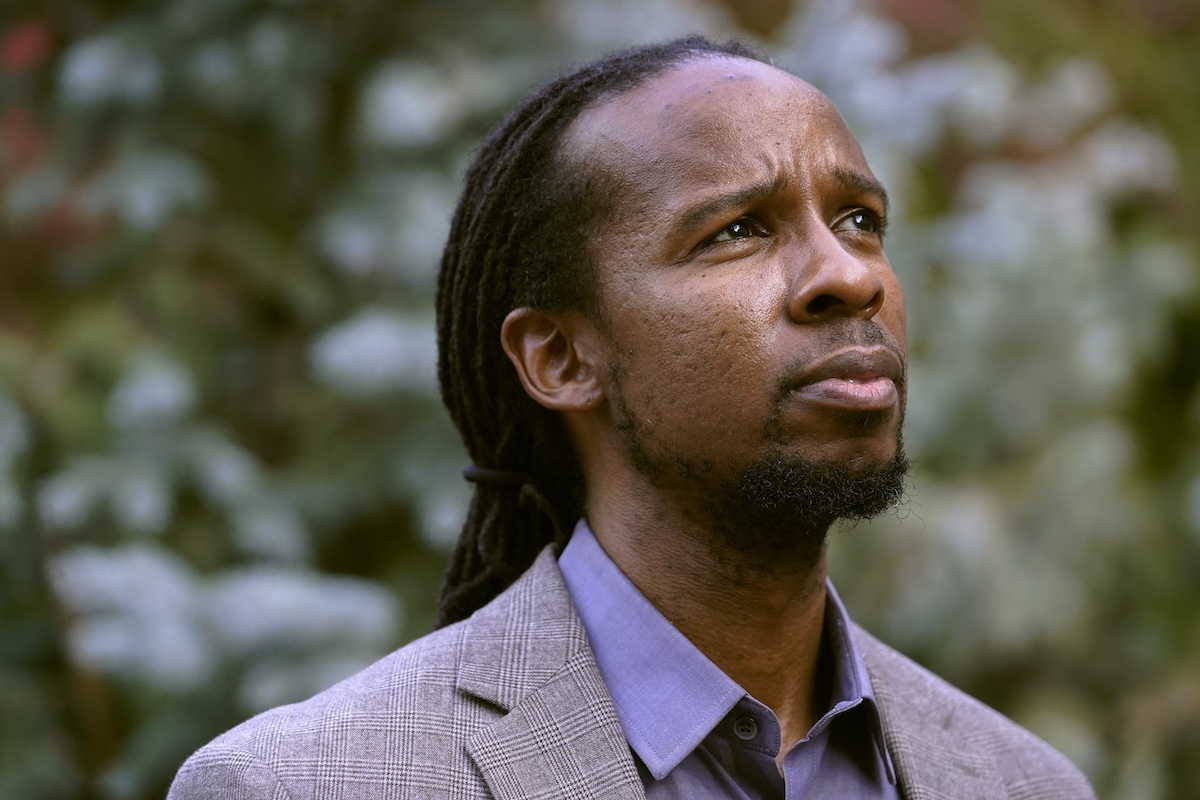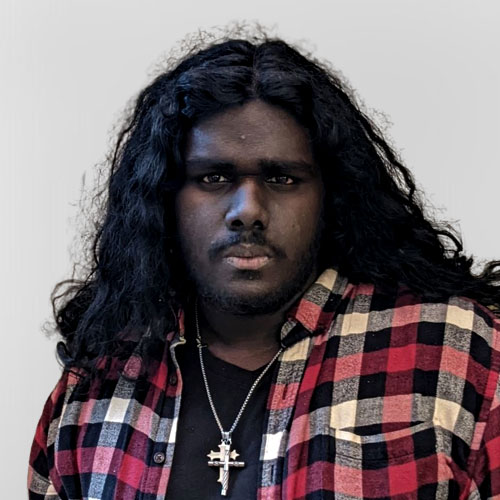One of the most telling quotes I’ve heard regarding the conservative movement on racial issues comes from political commentator Candace Owens’ Twitter bio: “Black people don’t have to be Democrats—still.” It epitomizes the modern conservative disconnect: we are very, very good at criticizing existing political visions and are conversely very, very bad at creating alternate ones that appeal to people not on our side. On racial issues especially, this disconnect is incredibly clear. Americans of color do not have to be progressives—the widely criticized modern progressive movement is offering them zero good answers and has earned neither their trust nor their loyalty. Yet that is the other edge of the Candace-ism: it never explains why Americans of color should be conservative.
Crafting an alternate vision for race relations, one capable of loosening anti-racism’s stranglehold on the agenda, involves something profoundly uncomfortable for conservatives and many Americans more broadly: talking about race. Even discussing a discussion is fraught with peril—one may recall Morgan Freeman’s quip that the only way to end racism is to stop talking about—but it will be necessary if we’re seriously committed to undoing the damage that the modern anti-racist movement has done to Americans of all colors.
So … we must talk about race—not via struggle sessions or in Marxist language, but in clear, kind, and cogent fashion if we’re finally to be rid of the ideological shroud crafted by the likes of Ibram X. Kendi, Robin DiAngelo, and Nikole Hannah-Jones, and the warm sunlight of post-racialism is to shine on the faces of those who need it the most. It is, to use the age-old philosophical construct, a struggle for enlightenment. The high priests and priestesses of the anti-racist religion are seeking to keep Americans of color in Plato’s cave, terrified for them to see the truth and experience the freedom that an alternate view of society can provide.
It is our and our institutions’ job to be the key agents in their escaping that cave. Doing so, however, requires that we have a vision of race relations that is not only at odds with anti-racist doctrine but philosophically robust. We need thinkers with a grasp of the West’s philosophical heritage and an understanding of America’s history of grappling with racial tensions.
Dr. Andre Archie looks to be one among this growing cadre of thinkers. His background is well-suited for the task ahead. In sharp contrast to many who articulate their anti-racist social critiques within fields such as black/ethnic studies, Archie’s academic credentials come from studying the roots of the West, teaching ancient Greek philosophy at Colorado State University. His latest book, The Virtue of Color-Blindness, is a withering critique of the modern anti-racist movement, which he defines as “mak[ing] explicit the structural nature of white economic and social power, and how it is perpetuated at the expense of black Americans and other people of color.” The book offers a much-needed pushback to the perspective on race currently in vogue in American society, even if parts of his perspective create more questions than answers.
“The virtues of the color-blind approach shouldn’t be up for debate in the public square,” Archie begins in Virtue. Already, I have at least one question: Why shouldn’t they be? As I’ve had the privilege of expounding upon at Acton in the past, conservatives and those who should be the defenders of true racial progress and reconciliation have not succeeded in driving the conversation on race in America. The anti-racist movement, in fact, controls the discussion today, and we are in the revanche position at best, and the underdog position at worst. The struggle to get people to not be racist, as a most basic objective, or to unlearn race entirely, as a most ambitious goal, is not appealing to fundamental human nature. It’s asking people to unlearn something deeply intrinsic to the way in which we all view the world—in other words, developing “the ability to stop seeing people as representative of/responsible for any category that isn’t completely their own.” That kind of restructuring will take debate, and it’s a debate that Archie is engaging in at a high level—but this is perhaps where the biggest question arises in regard to Archie’s philosophy.
He maintains that not judging people based on their race “should be … uncontroversial and intuitive.” Yet, in the very next sentence, he laments the fact that color-blindness is “controversial and counterintuitive.” This is the question that advocates of color-blindness/post-racialism need to get a straight answer to: Is the end goal of judging our fellow men and women by character and not color a return to some intuitive state that we used to inhabit before the rise of wokeness/modern anti-racism? Or is it a goal that’s going to take us into truly uncharted territory in terms of looking past ethnic division at a societal level and even within our own hearts?
I’ll cut to the chase: color-blindness is controversial, hence the ideological battle we’re seeing being played out in academia, the media, even popular entertainment. The idea of not judging people by their race is one that cuts against our deepest “us vs. them” tribal instincts—instincts to which the anti-racist movement too often actively appeals. In a perfect world, color-blindness wouldn’t be controversial, however. But we live in a world where anti-racism’s segregationist thinking has poisoned many of our social institutions—against such a backdrop, the controversy we create is proof that we’re actually offering something of substance. And this substance is precisely where our hope comes from.
Archie’s thesis—that color-blindness is fully consistent with the virtues and values of the American experiment—is masterfully defended. His depiction of falling in love with the ideals of Western civilization as a young black man is a heartwarming narrative for those of us (myself included) who retain a sense of cold pessimism about Americans of color breaking out of the anti-racist cave and basking in the glow of the greatest ideas of the greatest civilization that’s ever existed. He merges his analysis of figures ranging from Aristotle to W.E.B. Du Bois to Frederick Douglass admirably, tying threads together as only a skilled academic can. He also takes the time to examine seriously several thinkers the modern color-blind/post-racial movement would traditionally consider enemies, including Derrick Bell, Ta-Nehisi Coates, and the anti-racist pope, Ibram X. Kendi.
Such analysis is well worth the reader’s attention—but it’s Archie’s focus that is particularly of note. Archie grasps what all conservatives need to understand about the race debate in 2023: the attempts to divide America into oppressed and oppressor categories are not disconnected from the struggle to prove the legitimacy of Western civilization. They are a direct attack upon that civilization. Defending that civilization means making a compelling and convincing argument that moving beyond race is the natural conclusion of the West’s ideological trajectory, even if some of its greatest thinkers would not have been able to pass an implicit bias test. Archie doesn’t limit his defense of the West to black thinkers, but his exploration of their work is exemplary (his treatment of W.E.B. du Bois and the scholar’s relationship to Western literature, for example, is a story more people need to hear and appreciate). He incorporates Douglass and Socrates in the way any thinker who’s serious about moving beyond race and celebrating the West’s achievements absolutely must.
Archie represents a certain Classics-heavy strategy to rebutting modern anti-racism, and conservatives who share that end goal will vary in their strategy. As with many modern books coming out of the right, however, Archie’s work is at its most incisive in its analysis of the tactical pathway before us. “We can no longer afford to indulge our reluctance to challenge segregationist thinking,” Archie writes, and it might be the most important sentence in the book.
To battle what Archie deems “comfortable racism,” not of the Jim Crow variety but the status quo in which DEI offices run amok and its critics stay quiet out of fear, will take courage. To appropriate Martin Luther King Jr. and to reject Kendi-ism involves galvanizing the political moderates, “more devoted to ‘order’ than to justice; who prefer a negative peace which is the absence of tension to a positive peace which is the presence of justice.” We have the opportunity, unlike any before us, to realize the dream of a society making meaningful steps to erase racial classifications.
That’s going to create tension. Good. Post-racialism may not be intuitive, but it is worth fighting against our darkest instincts to achieve the true virtue contained therein. Fighting the hyper-racialism of modern thinkers like Kendi and Coates is a battle for the heart and soul of Western civilization, and as such it demands the energy and commitment of those meaningfully engaged in the work of liberty.
Not all of us may be ready to fight, but it’s nevertheless a battle that affects all of us—so for the love of all that’s holy, let’s stop pulling our punches.

